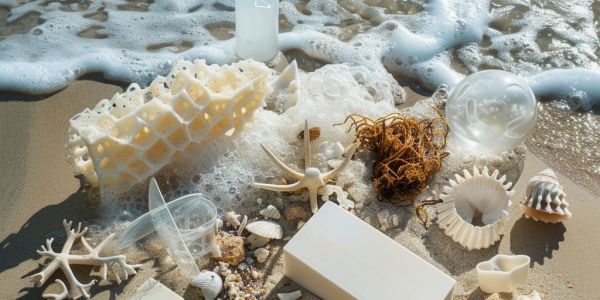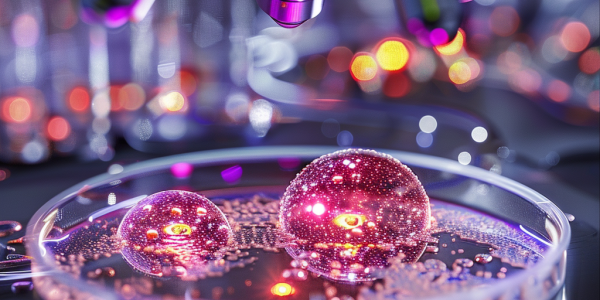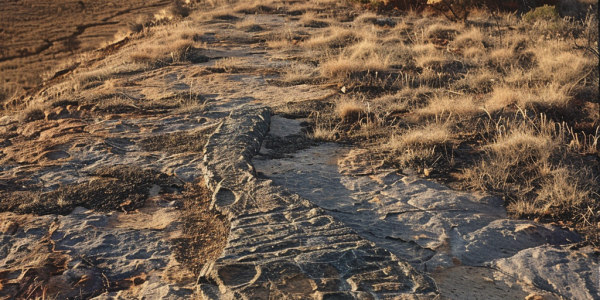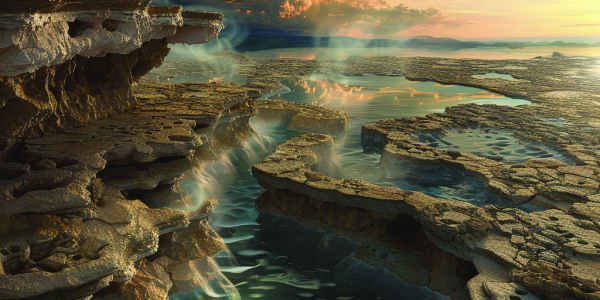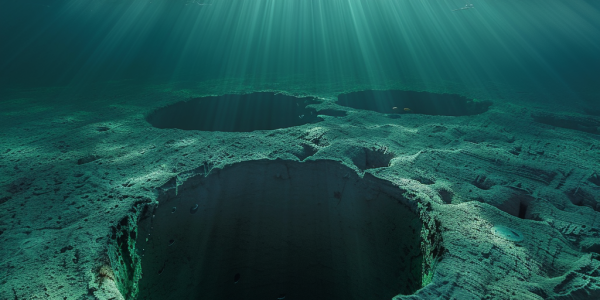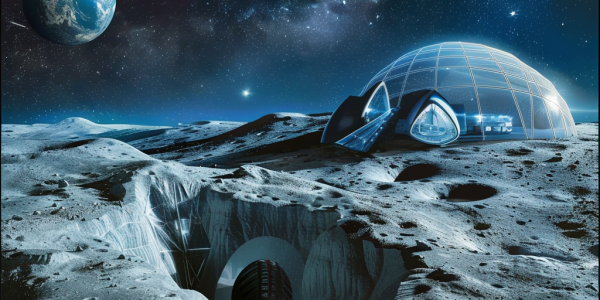WHOI Scientists Unveil Fast-Degrading Bioplastic as Solution to Ocean Pollution
Scientists at WHOI have unveiled a revolutionary bioplastic, cellulose diacetate (CDA), that degrades 15 times faster in seawater than traditional plastics like Styrofoam. This sustainable material, developed to combat marine pollution, shows promising results, losing up to 70% of its mass in just 36 weeks. The study highlights the urgent need for biodegradable alternatives to reduce plastic waste and protect marine ecosystems.
Breakthrough Research Uncovers Protein’s Role in Healthier Aging
Groundbreaking research from McMaster University reveals the protective role of MANF proteins in cellular health, offering new hope for innovative treatments targeting age-related diseases like Alzheimer’s and Parkinson’s. This study highlights the importance of protein management in promoting healthier aging and mitigating cognitive decline.
Dr. Bruce Lahn Named to 2024 PharmaVoice 100 for Leadership in Biotechnology
Dr. Bruce Lahn, Chief Scientist at VectorBuilder, has been named to the prestigious 2024 PharmaVoice 100 list, recognizing his significant contributions to genetic engineering and biotechnology. Under his leadership, VectorBuilder is advancing gene delivery solutions, crucial for personalized medicine and innovative therapies. This accolade highlights the importance of visionary leaders in the pharmaceutical industry, shaping the future of healthcare and improving patient outcomes.
Groundbreaking Research Reveals ‘Third State’ of Cells After Death
Scientists have discovered a ‘third state’ of cells that allows them to exhibit new functionalities even after death, challenging traditional biological concepts. This groundbreaking research, led by biologists Peter Nobel and Alex Pozhitkov, reveals the adaptability of cells known as xenobots and anthrobots, which can reorganize and thrive post-mortem. Their findings, published in the journal Physiology, suggest that cellular systems possess a remarkable plasticity, opening new avenues for regenerative medicine and our understanding of life and death.
Ancient Fossil Discovery Sheds Light on Evolution of Complex Life
A groundbreaking discovery in Australia has unveiled the ancient creature Quaestio simpsonorum, providing crucial evidence of bilateral symmetry and the evolutionary journey of complex life over 500 million years ago. This rare fossil find from the Ediacaran period highlights the significance of paleontology in understanding Earth’s history and the ecological dynamics of early life forms.
Scientists Discover Method to Pause Human Development, Transforming IVF Potential
Recent advancements in biological research reveal a groundbreaking method to pause human development, with significant implications for reproductive health and in vitro fertilization (IVF). A study published in Cell explores how manipulating the mTOR signaling pathway allows human stem cells to enter a state similar to diapause, potentially improving embryo implantation timing and success rates in IVF treatments. This innovative discovery opens new avenues for addressing fertility challenges and enhances our understanding of biological adaptability.
Study Reveals Conditions for Life’s Origins on Earth and Beyond
A groundbreaking study published in eLife reveals that gas flow over water in early Earth environments may have facilitated nucleic acid replication, crucial for the emergence of life. The research highlights volcanic islands as potential cradles for life, suggesting simpler conditions for life’s origins and opening new possibilities for extraterrestrial life. Discover how this study reshapes our understanding of life’s beginnings and its potential beyond Earth.
Discovery of 40 Large Craters in Lake Michigan Sparks Scientific Curiosity
Recent discoveries in Lake Michigan reveal 40 large craters at the bottom of the lake, confirmed as natural formations by maritime archaeologists. These craters, located within the Wisconsin Shipwreck Coast National Marine Sanctuary, offer a unique opportunity to study the geological history of the Great Lakes. Researchers are now investigating the origins and ecological implications of these formations, sparking public interest in the mysteries beneath the surface.
Scientists Discover ‘Third State’ Beyond Life and Death
Scientists have discovered a ‘third state’ beyond life and death, challenging traditional perceptions of existence. This groundbreaking research reveals that certain cells, particularly those involved in organ donation, remain active post-mortem, offering new insights into regenerative medicine and organ preservation. The findings could redefine our understanding of life and death, prompting both scientific and philosophical discussions about existence.
Scientists Propose Lunar Biorepository to Preserve Earth’s Biodiversity
Scientists propose a revolutionary lunar biorepository to preserve Earth’s biodiversity amidst climate change and habitat loss. This innovative facility aims to store critical biological samples, including DNA from endangered species, in the moon’s frigid environment, ensuring their survival against extinction. As climate threats escalate, this groundbreaking concept could redefine conservation strategies and safeguard genetic diversity for future generations.

